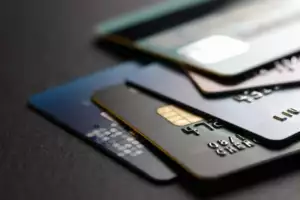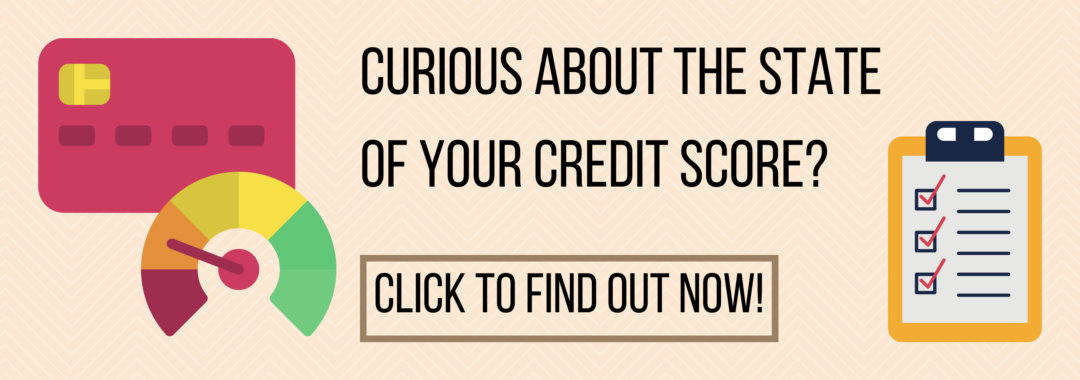‘Bad credit score’ is one of the most daunting phrases you could hear — and with good reason. If your credit score is above the standard rate (i.e. the safe zone), the prospect of getting approvals for loans and credit cards from banks and other financial institutions in Malaysia becomes significantly harder.
No worries, a bad credit score is not permanent and can be remediated! But first, we have to learn more about credit scores, what they are and what they mean.
| What Is A Credit Score? What Can I Find in a CCRIS Report? How Can I Find Out My Credit Score? Why Are Credit Scores Important? Who Can Access Your CCRIS Report? How To Improve Your Credit Score? |
What Is A Credit Score?
In basic terms, a credit score is a figure that indicates an individual’s financial track record, i.e. their punctuality and ability to make payments. This score is widely utilized by banks to make credit risk assessments to determine the creditworthiness of potential borrowers before the approval of loan applications.
The aforementioned credit score is calculated via CCRIS (Central Credit Reference Information System) and is expressed in the form of a credit report (or CCRIS report) that can be likened to a student report card. However, a direct score (e.g. 650) will not be shown on an average CCRIS report — we’ll get to that later!
CCRIS is a system developed by Bank Negara Malaysia (BNM) to standardize credit risk management across financial institutions. CCRIS reports, or credit reports, also contains a record of your financing activities within the past 12 months. All clear so far?
What Can I Find In A CCRIS Report?
CCRIS Reports are objective in its very nature. This essentially means that your report won’t tell you outright if your credit standing is good or bad due to an absence of a credit score as hinted earlier.
Rather, your CCRIS report will outline 3 main components:
Outstanding Credit
Your outstanding balance from existing credit sources (e.g. house loans, credit card debts) alongside arrears and legal status (if any) will be outlined here. This section is useful for lenders to assess your repayment behaviour as your ability to repay and arrears settled are strong indicators of your creditworthiness.
Special Attention Account
Your outstanding credit from existing credit sources that are closely monitored by financial institutions are outlined here.
For example, nonperforming loans (i.e. loans that have defaulted due to no payments made after certain periods of time) or other unpaid credits that are scheduled under the special scheduling of the Credit Counselling and Debt Management Agency (AKPK) are outlined here.
Credit Application
Your credit activities from the past 12 months which include loan agreements and rejections are outlined here.
Banks can choose to reduce the borrowers’ expected loan amount, deprioritize loan approvals, ergo loan applications taking longer to be approved, or refuse outright if there are recent loan rejections in your report.
On the other hand, banks will be skeptical of any recent credit approvals as it could raise questions as to why should you apply for another line of credit. Banks will also be doubtful if you can make timely repayments on the new loan you’re asking for in addition to your existing credit obligations.
How Do I Find Out My Credit Score Then?
If you find yourself easily confused by technical jargons, analysing your report to determine your credit standing can be an uphill struggle indeed.
Therefore, it’s recommended that you seek out the professional service of Credit Reporting Agencies (CRA). CTOS (Credit Tip Off Service) is one such privately-owned CRA that stands out as being the most popular choice for financial institutions and individuals in Malaysia.
With their free basic report (premium options with extra security features also available), not only will you receive a BNM-approved CCRIS report but CTOS will also provide a credit score that clearly indicates your credit standing; no brainy calculations necessary!

Your credit score is expressed by 3-digit numbers that ranges between 300-850. The higher the number, the better your credit standing is. Easy enough, right?
However, CTOS aren’t the only agency providing this service. Here are other simple ways to get your CCRIS reports.
Online Reports from Approved CRAs (with credit score):
› CTOS Data Systems
› Credit Bureau Malaysia
› Experian Information Systems (Malaysia)
› eCCRIS Portal *Note that this report does not include a credit score*
In Person
You may visit BNM’s regional branches or its head office to request a physical copy of the report. You will need to submit an application form along with a copy of your IC and additional documents like your driving license or passport.
Alternatively, you can use a kiosk at any nearby Agensi Kaunseling dan Pengurusan Kredit (AKPK) branches or certain BNM branches. By inserting your MyKad, followed by a thumbprint, you may begin to print your report once your identity is confirmed.
By Correspondence
To request a report from Bank Negara Malaysia (BNM), you can send your request via mail, e-mail, or fax to BNM TELELINK. Be sure to include all the necessary documents as specified in your communication.
Why Are Credit Scores Important?
Since a CCRIS report acts as your ‘financial report card’, its importance cannot be emphasized enough whenever you’re applying for a loan or credit card(s). But what else is a good credit score good for? For instance, a good credit score can:
- Inform your expenditure habits which allows for better savings in the future.
- Banks and lenders will be more likely to approve your credit applications.
- More negotiating power.
- Better mortgage and interest rates.
- Faster credit approvals.
- Better car loans and auto insurance.
Who Can Access My CCRIS Report?
Your CCRIS report can be accessed by many different parties, yourself included. However, keep in mind that only *YOU* can authorize your report should any third party requests access to it.
- Individuals can request access to their own reports via BNM or CRAs like CTOS at any time. A business entity may request their own reports the same way.
- Financial Institutions will request consent to access your report typically during credit applications. Banks are also allowed to review existing customers’ CCRIS reports. Therefore, banks cannot issue CCRIS reports like CRAs can because they cannot legally keep or access reports without consent, especially reports of non-existing clients.
- Credit Reporting Agencies (CRA) that are BNM-approved issues CCRIS reports with added proprietary features (credit score) upon request from individuals or companies. However, CRAs are legally required not to distribute reports to other financial institutions without borrowers’ prior consent as per the Credit Reporting Agencies Act 2010.
How To Improve Your Credit Score
Good or bad, you should always keep in mind that your credit score is impermanent.
Just because it’s sitting in the low ranges doesn’t mean you can’t do anything to make it higher. And if your credit score is high now, it could just as easily decrease if you’re not conscientious about your spending and repayment habits.
Nevertheless, it’s always good to remain vigilant of your credit health and there are many ways you can alleviate or maintain your credit standing.
1. Be Punctual

Many people tend to trivialize the act of paying bills. To most, it’s only a matter of pay and move on with their day. That is okay in itself, but only if they actually paid in a timely manner though.
Paying your bills on time could mean the difference between having a good credit score or a bad one, having a loan approved or rejected. Irrespective of how trivial your bills may seem (e.g. postpaid telco bills), it’s always good to pay early or on time but it’s always never good if you delay your payments as it will reflect poorly in your CCRIS report.
You can start setting up direct debit on certain bills so that you won’t forget or make late payments as funds are automatically deducted from your bank account.
2. Limit Credit Usage
Lines of credit which you cannot reasonably finance are obviously bad for your credit score. However, unnecessary credit — even ones that you can technically afford — are also sure to raise suspicions from lenders.
Therefore, you should refrain from applying superfluous loans and adding on to your credit card “collection” to avoid lenders deeming your financial behaviour as reckless.
Instead, try to keep your credit expenditures moderate. Having a single credit card can reduce the risk of overspending and will be easier to keep track of. Although, having at least 2 credit cards can increase your credit limit and won’t immediately use up your credit limit on a single card in case you’re met with an unexpected expenditure, especially emergency-related ones, as you can divide the payment among both cards.
3. Start Building Your Savings

Since the most important part of your credit score is your payment history, good savings will help you avoid a bad credit score. You should make sure to have enough money in your transaction account after paying all your scheduled bills, and then you can save money by maintaining your plan.
You will not have to deal with any sudden fall in the score wand you can focus on building savings by fulfilling all the bills on. Later on, the savings will definitely give you a fruitful outcome.
4. Wipe Your Credit History
If your score is low or mediocre, you should first and foremost comb through the report to sniff out any and all errors.
Small, barely noticeable errors that can negatively impact your credit score do occasionally appear on reports which can be caused by oversights from sources like companies, financial institutions and even individuals that CRAs rely on to draft your report.
You should also pinpoint exactly which credit reports you’ve failed to make repayments for and start settling outstanding payments. However, do note that your CCRIS report might still retain records of your bad debts up to 12 months since you’ve resolved them.

The world has been seeing so many ups and downs since last year. After such a difficult year, a strategic move towards making a good credit score can be a stepping stone for you to recover or uplift your financial status. It will surely bring good news to you in the form of a home or car purchase or fine-tune your goals.
You should check your credit score at least once a year. Services like iMoney’s CreditScore currently offers credit score checking for free.
Before you go looking for your next investment endeavour, you should check your credit score at least once a year to avoid those awkward conversations with your bank.
Have a chat with our esteemed team to provide you with their financial advice for a better future!
[hubspot type=form portal=5699703 id=c063034a-f66d-41ab-881b-6e6a3f275c33]


